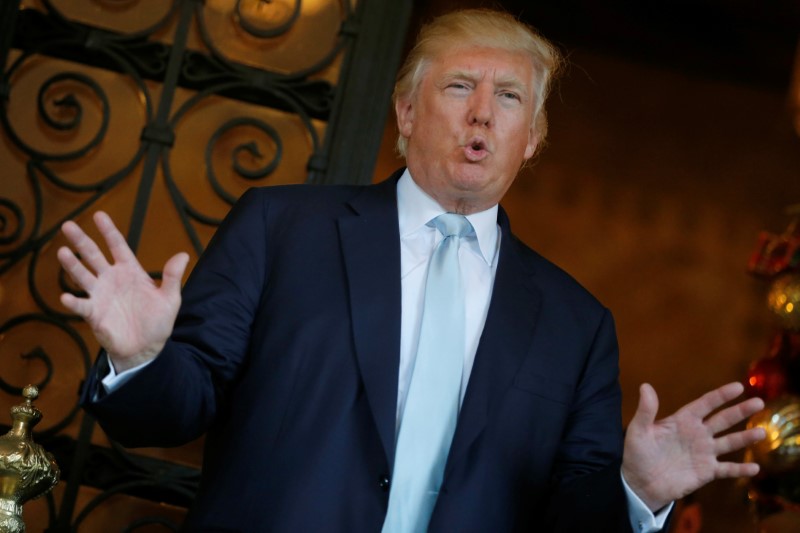WASHINGTON (Reuters) - U.S. President-elect Donald Trump plans to pick businessman William Hagerty as the next U.S. ambassador to Japan, an adviser to Trump's transition team told Reuters on Wednesday.
Japan's Nikkei news service reported that Trump would soon announce the choice of Hagerty, the director of presidential appointments in his transition team.
The adviser who spoke to Reuters confirmed the Nikkei report on condition of anonymity.
Hagerty is a Tennessee native who founded a private equity firm, Hagerty Peterson. He spent several years in Japan with the Boston Consulting Group management consultancy and later served in the White House of former President George H.W. Bush.
He will replace Caroline Kennedy, who has held the position since 2013.
Japan's chief cabinet secretary, Yoshihide Suga, declined to comment on the report since the choice has yet to be formally announced, saying only that he hoped the new ambassador would be able to develop a friendly U.S.-Japan relationship.
Others said that while the extent of Hagerty's knowledge of diplomacy and regional politics remained unknown and could be a concern, the choice suggests Trump is prioritizing economics in bilateral ties, which may relieve officials concerned by his protectionist stance on trade during the presidential campaign.
Japanese companies play a key role in the U.S. economy, employing more than 800,000 American workers. They contributed $78 billion to U.S. exports in 2014, according to the U.S. Embassy in Tokyo.
Koichi Hori, the chairman of consulting firm Dream Incubator Inc and a former president of Boston Consulting in Japan, who worked with Hagerty in the early 1990s, termed him a pragmatist who might not always toe Trump's conservative line on trade.
"Rather than doing that, he might advise Trump that if he doesn't think of other countries more, it ultimately may not benefit the United States," Hori added.
A long-time U.S. resident of Tokyo with knowledge of business and politics who knows Hagerty by reputation, but not personally, said he had a reputation as a "typical management consultant - logical, thoughtful, and has no patience for trade rhetoric."
The news was likely to reassure officials at the Ministry of Economics, Trade and Industry (METI) as well as the Ministry of Finance (MOF), he added.
"The boys at the U.S. Defense Department and the Defense Agency may be disappointed because of his lack of experience in the geopolitical aspects of the U.S.-Japan relationship, but METI, MOF and everyone else here in Tokyo should be breathing a sign of relief," he added.

Japan's Defense Ministry was formerly called the Defense Agency.